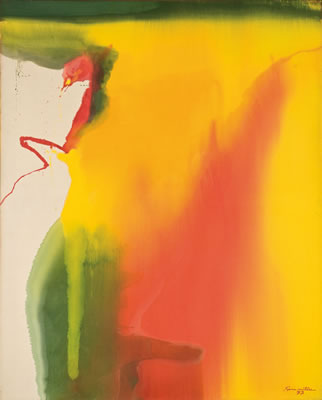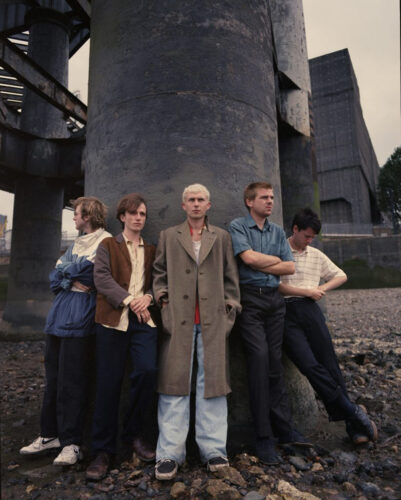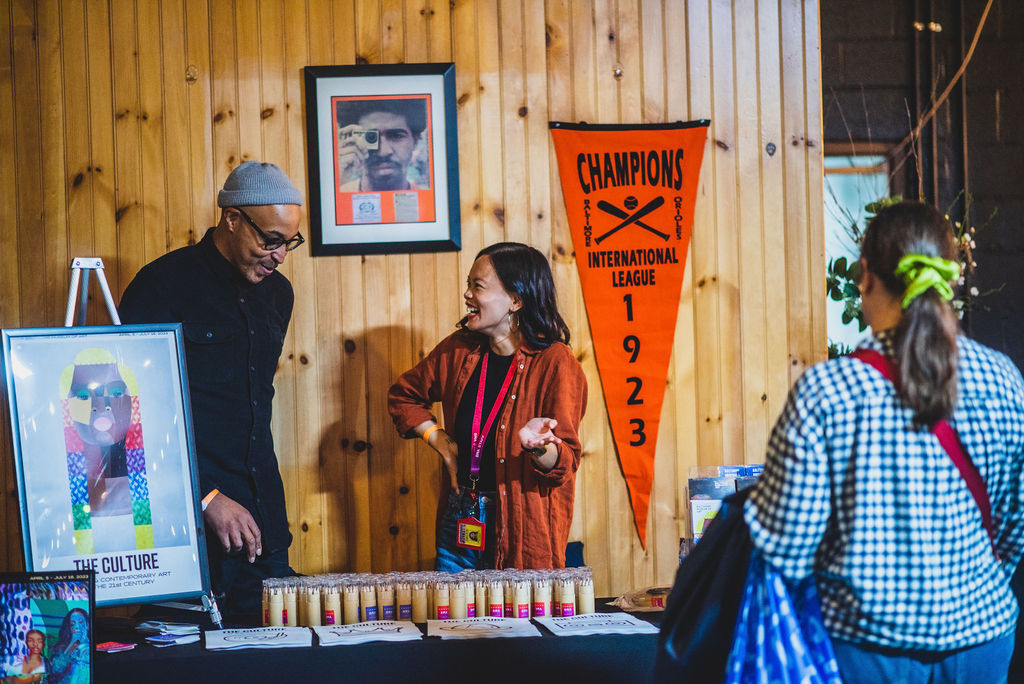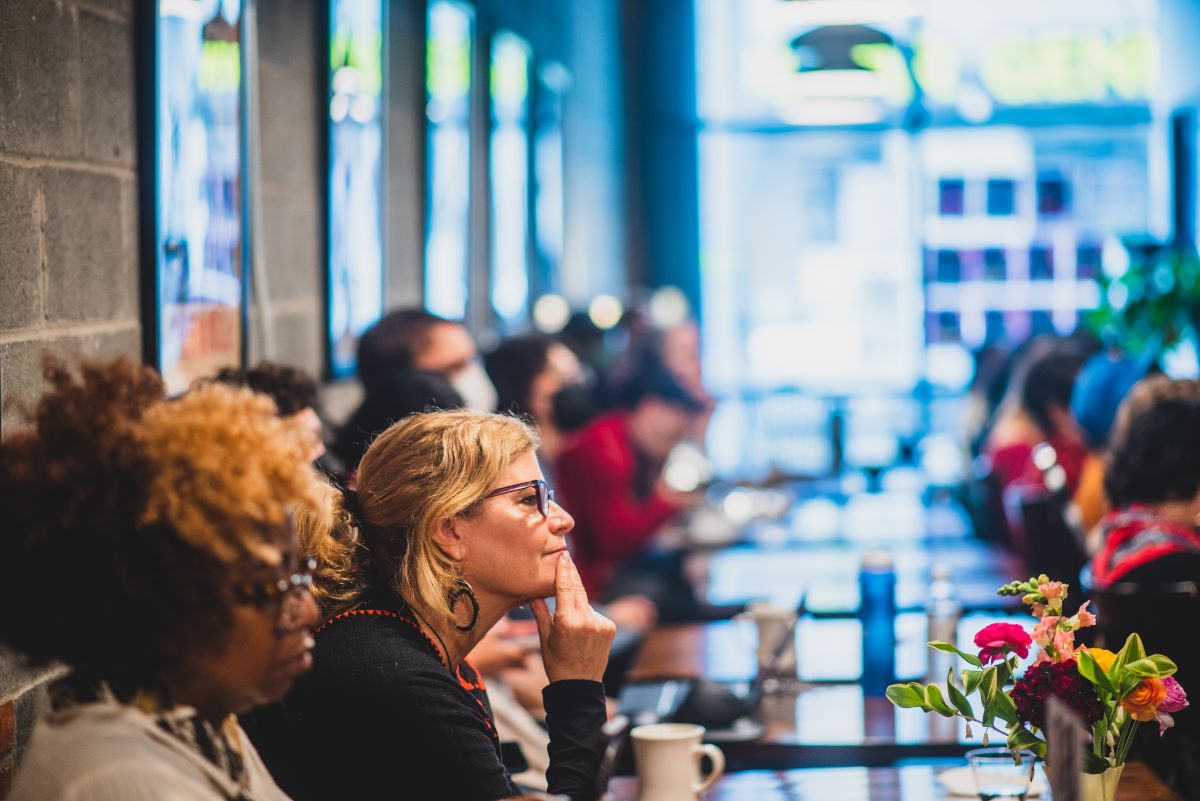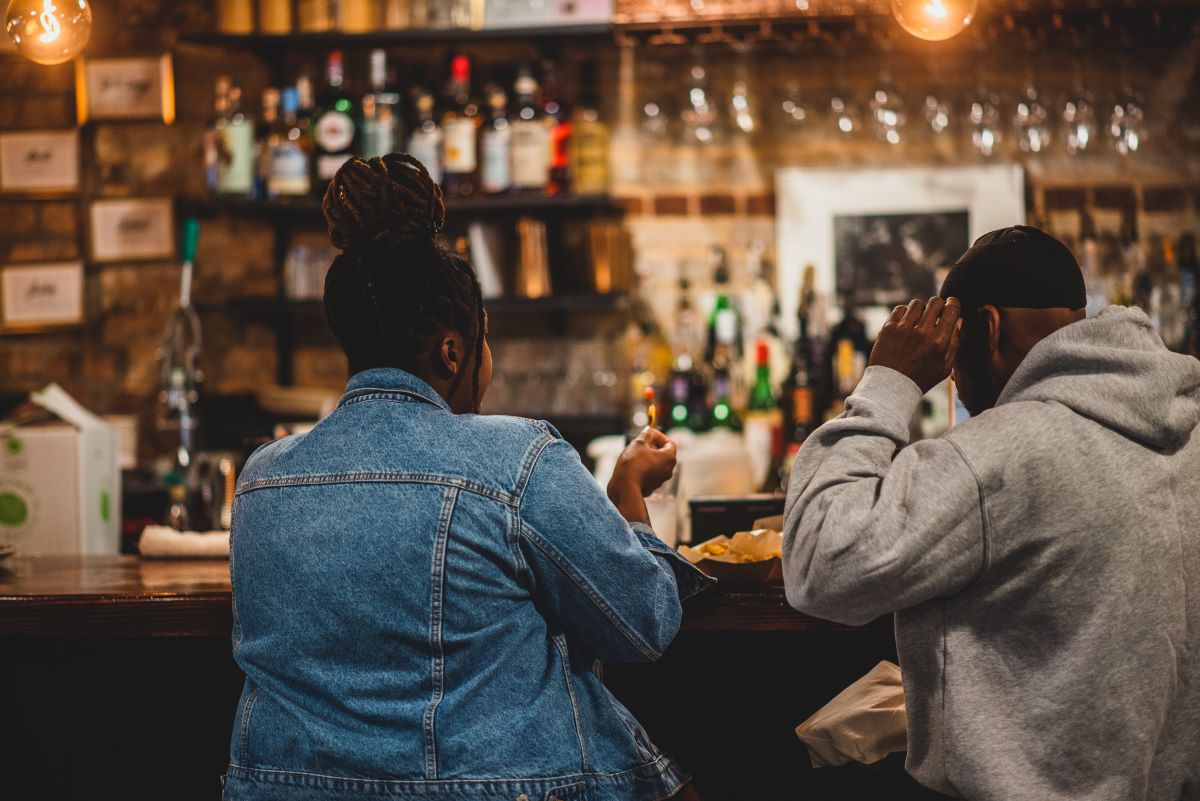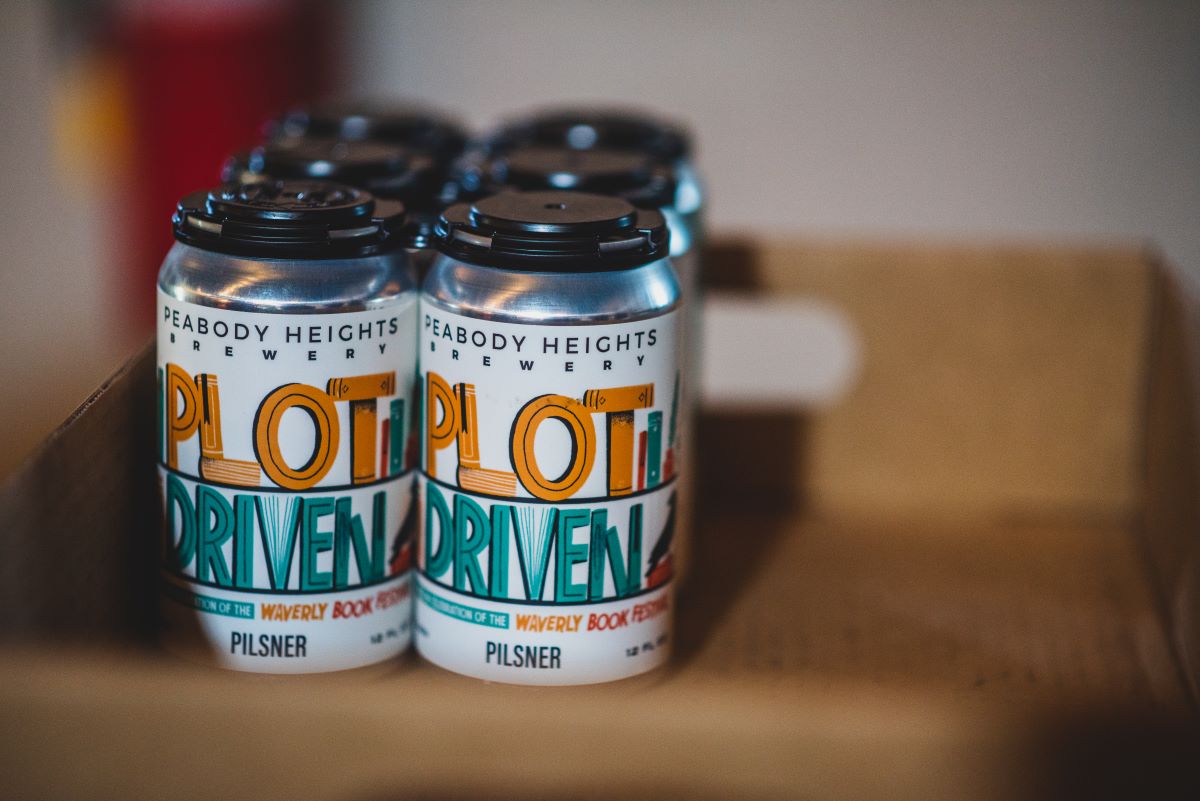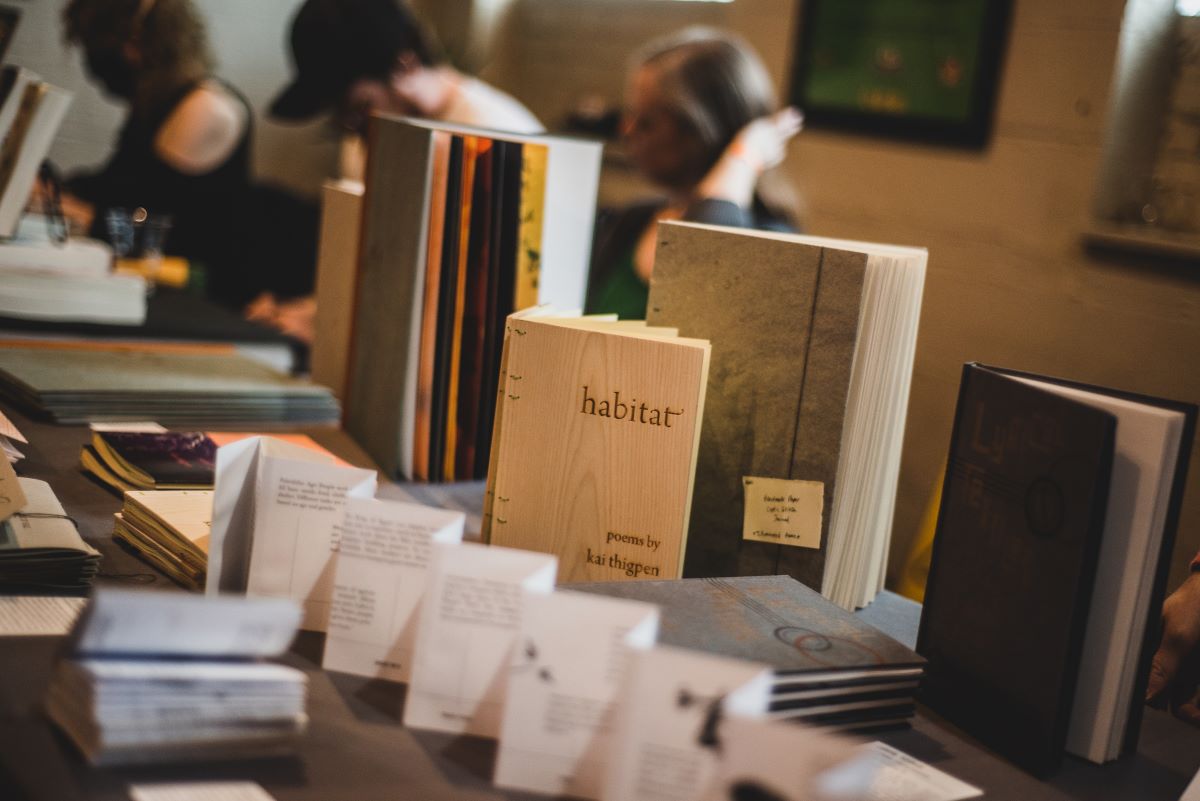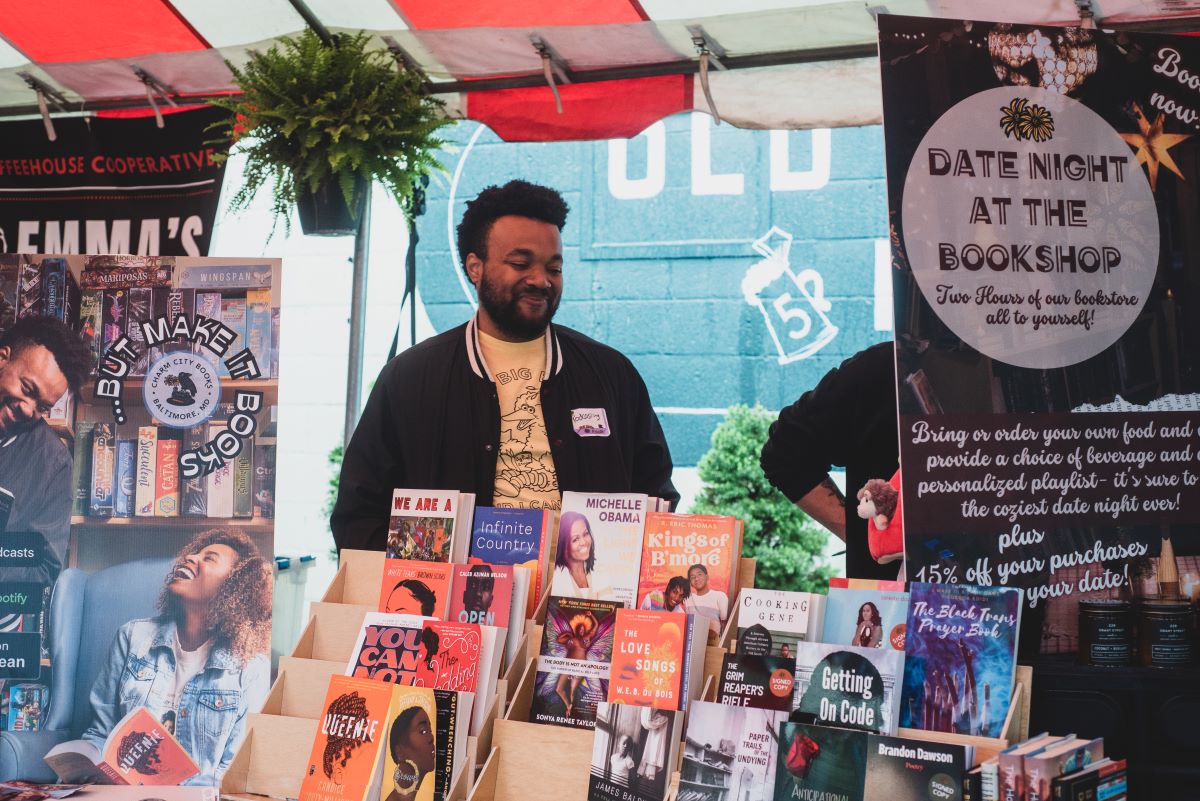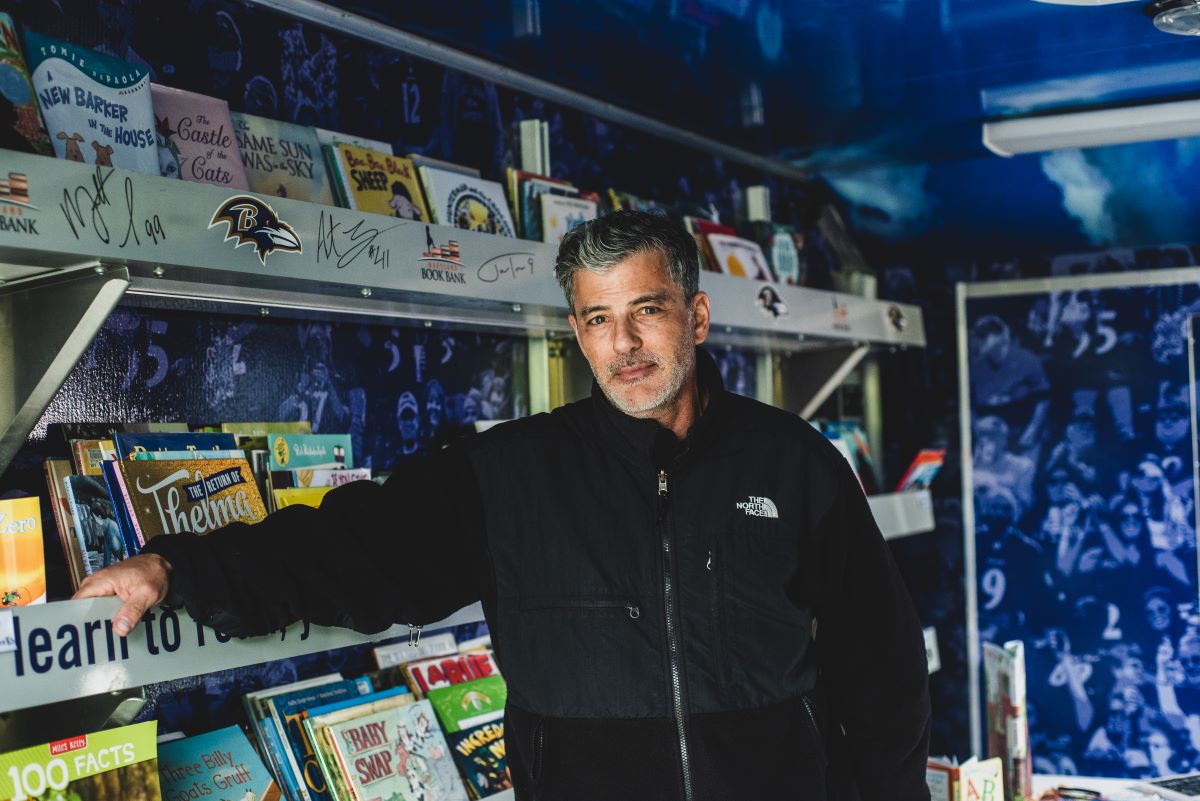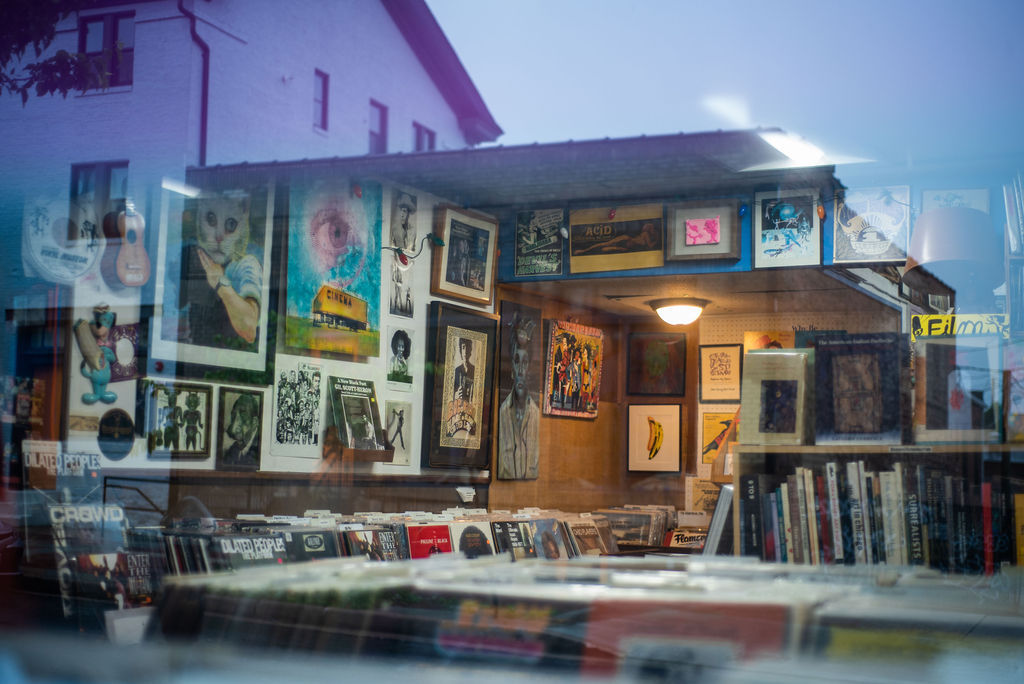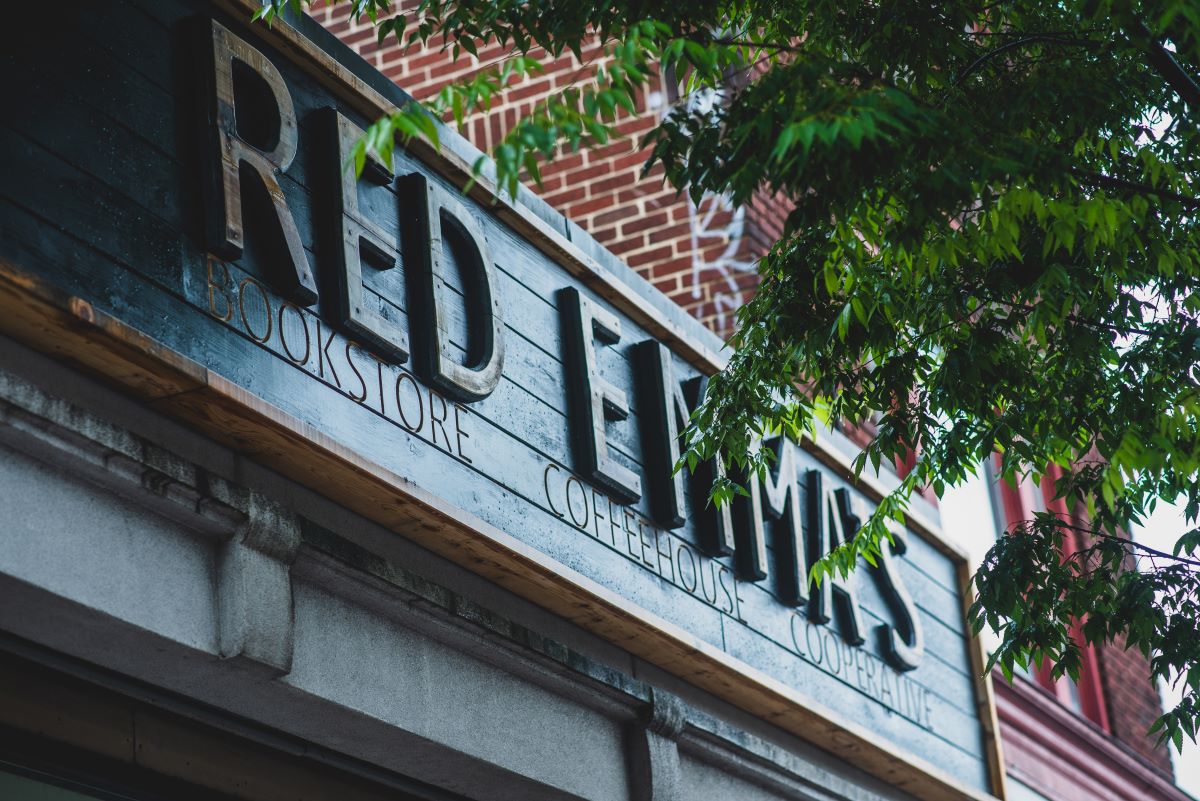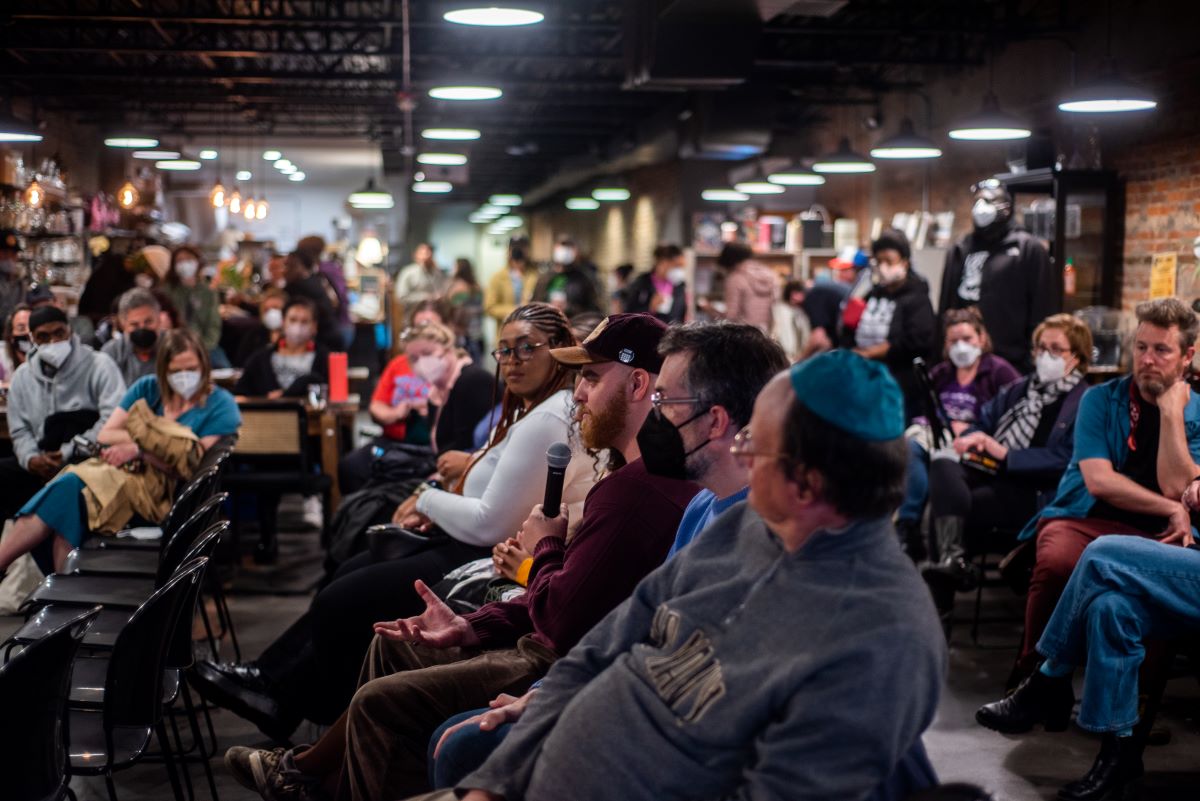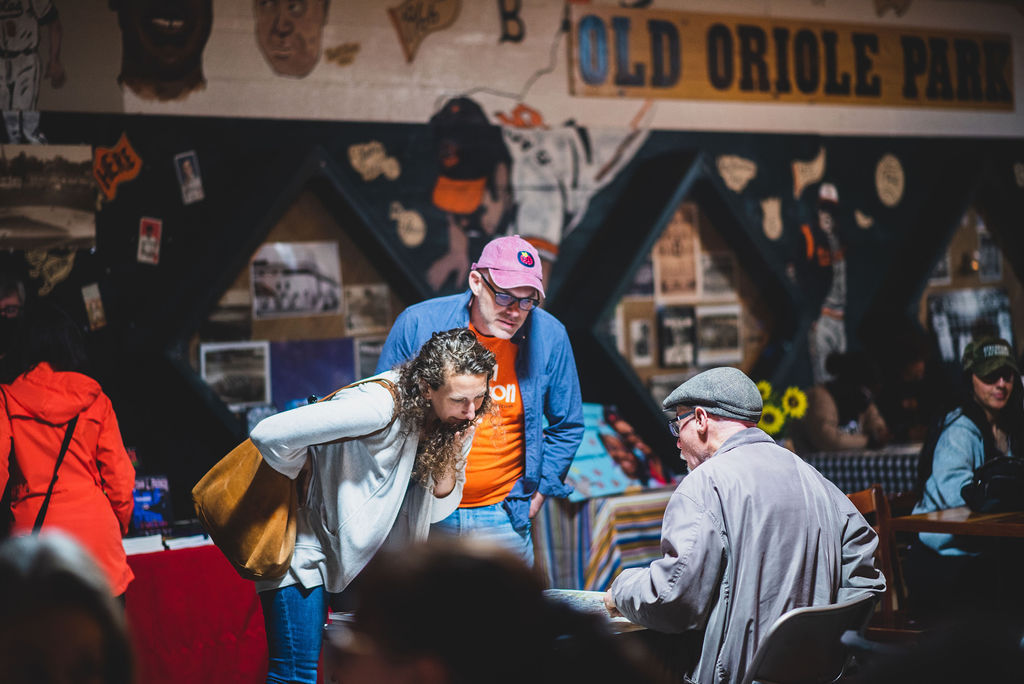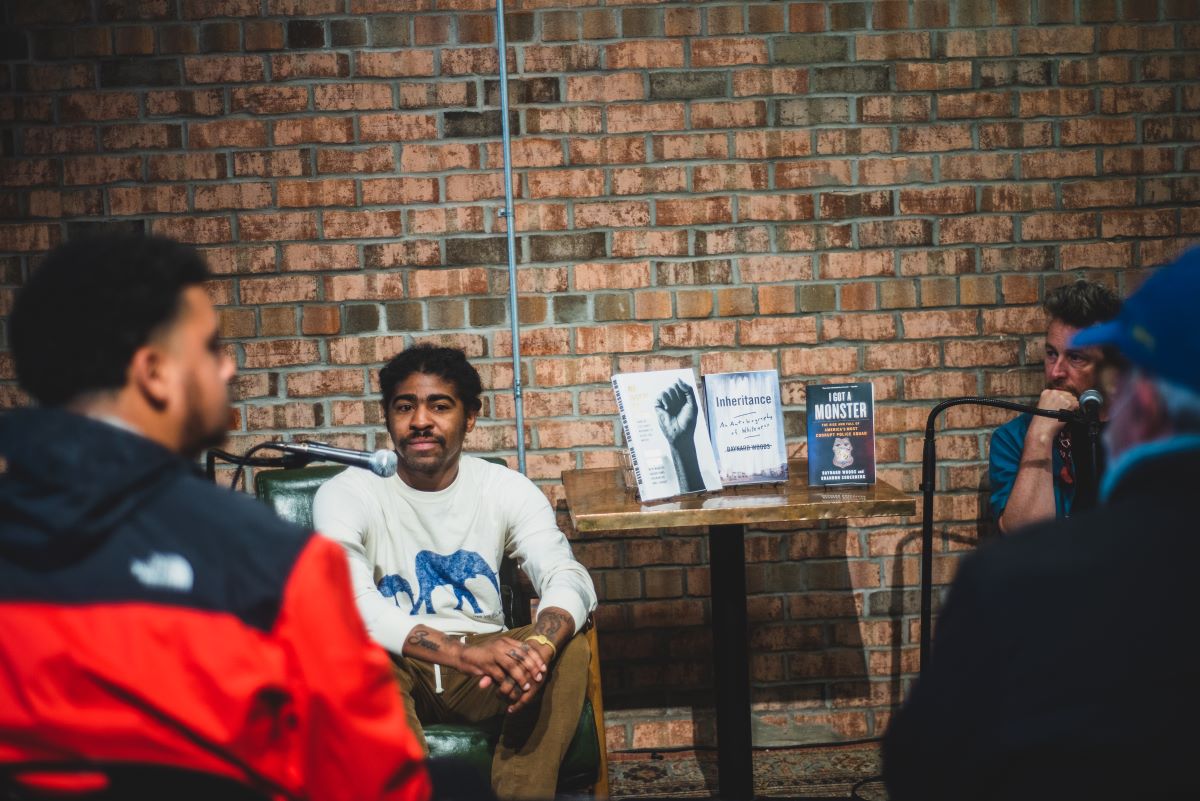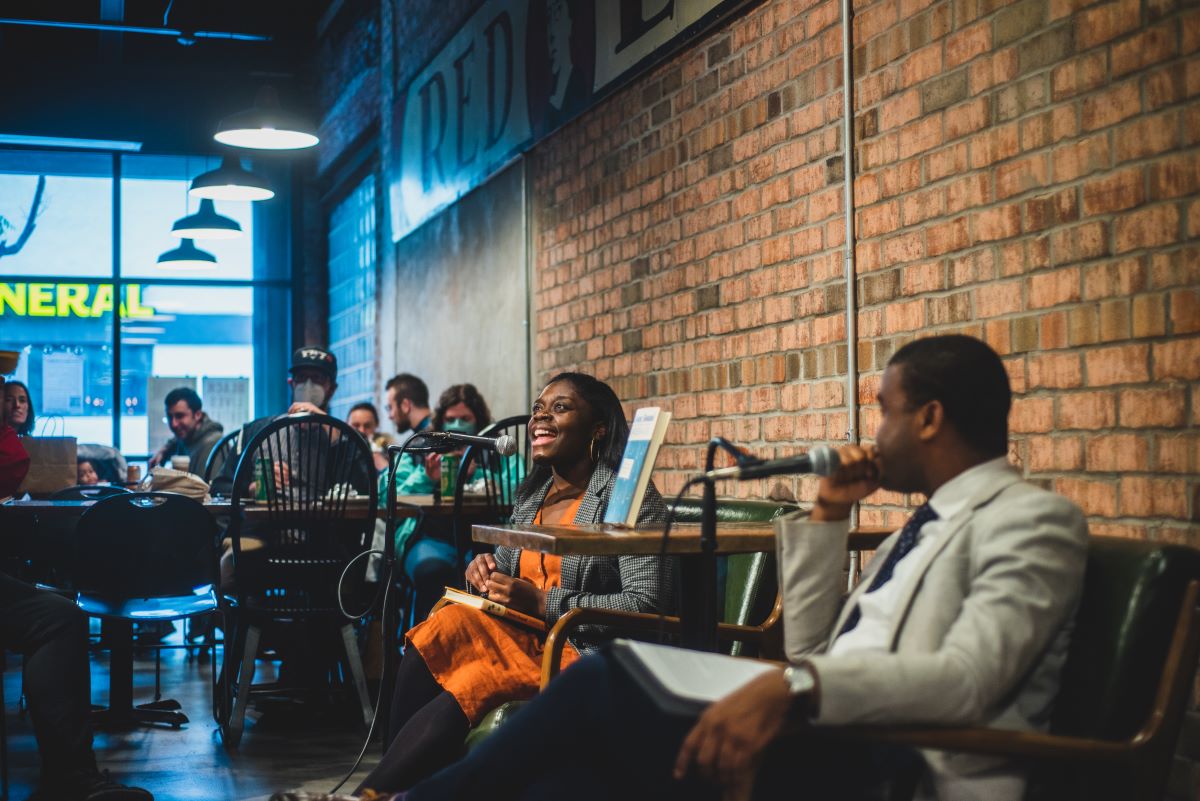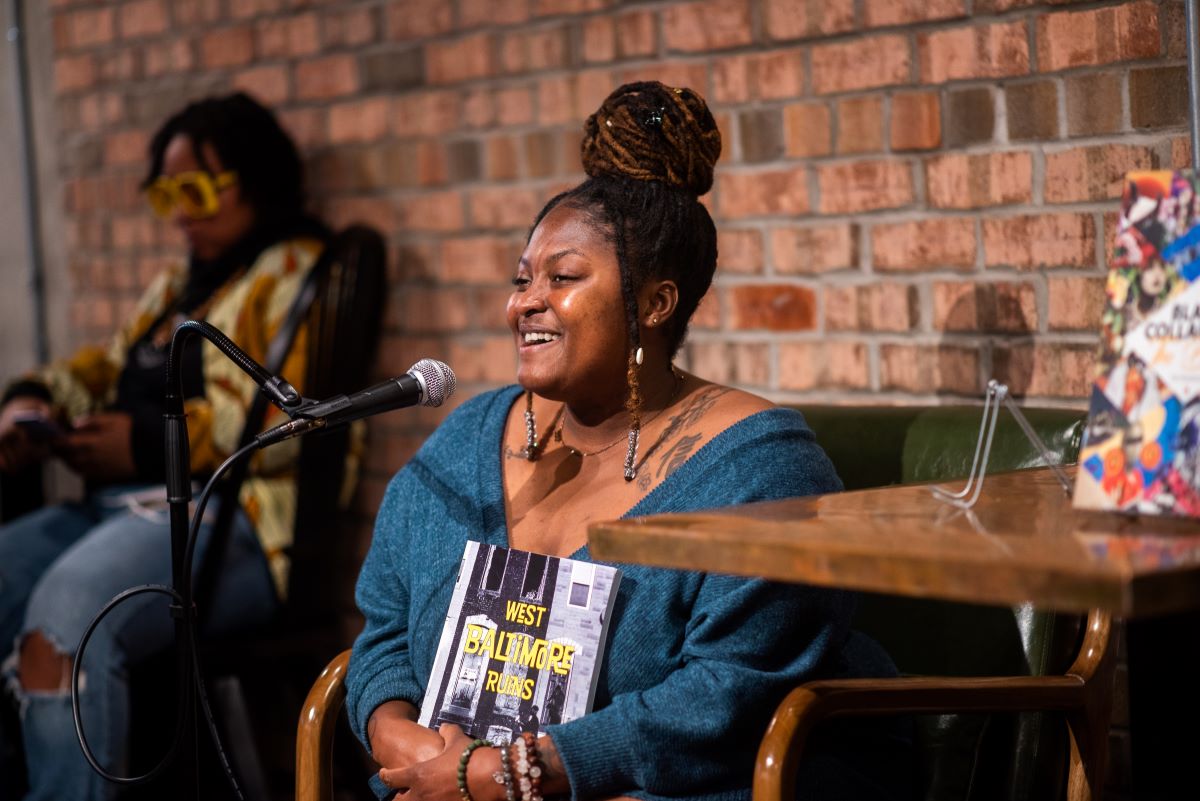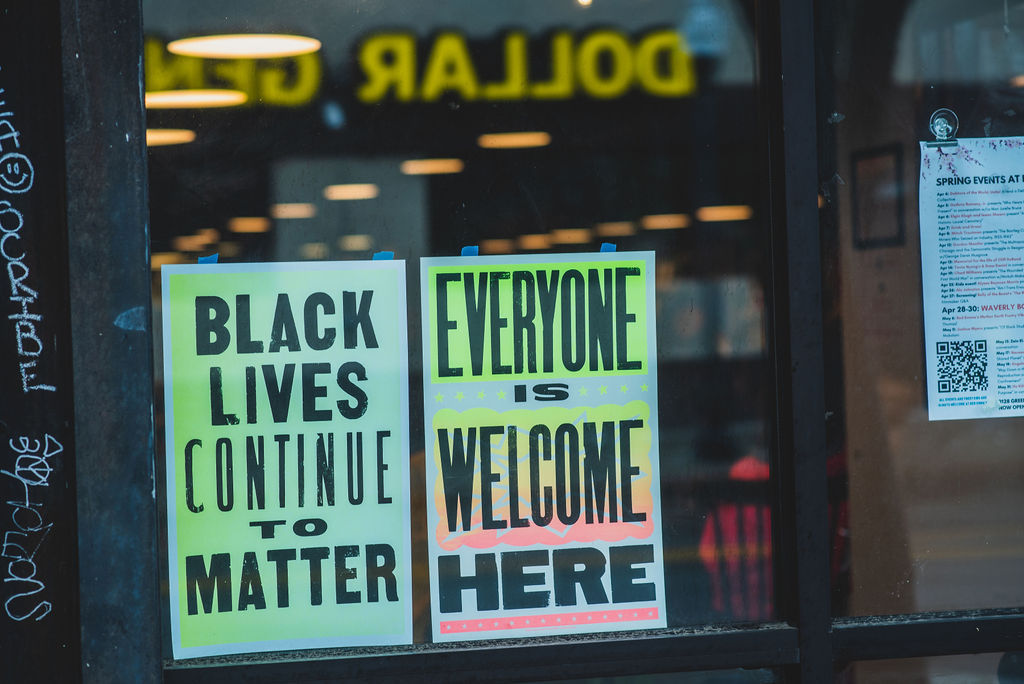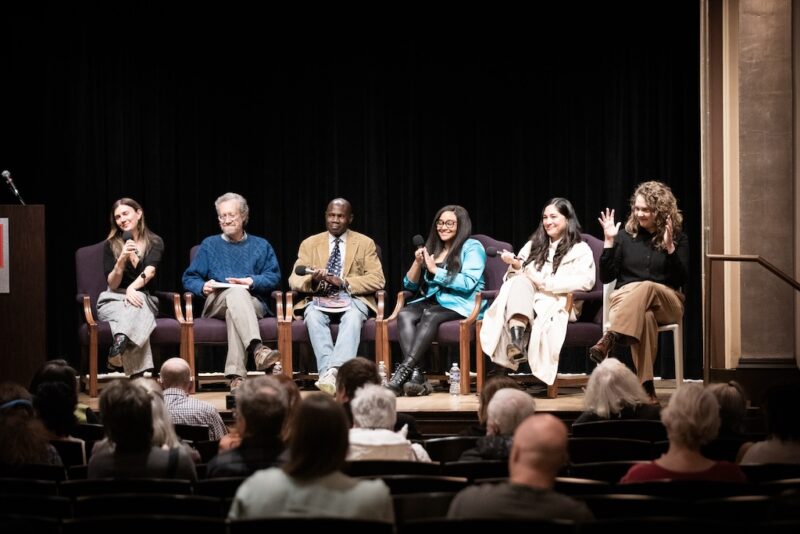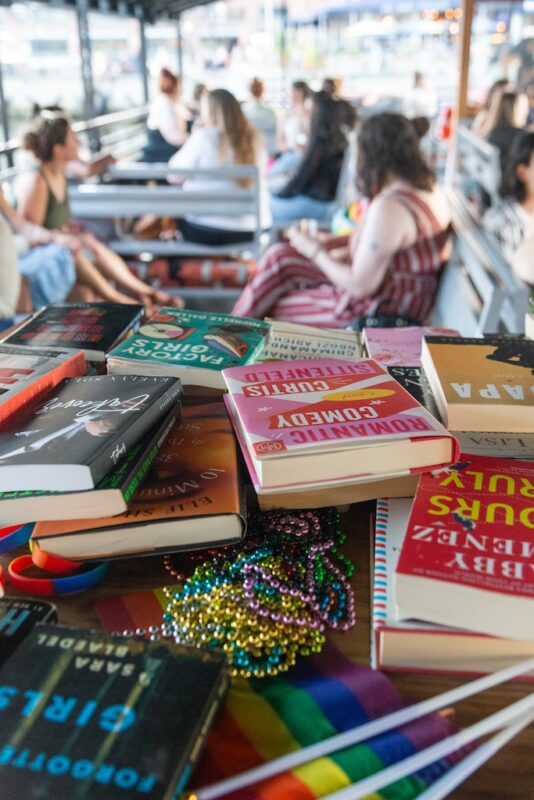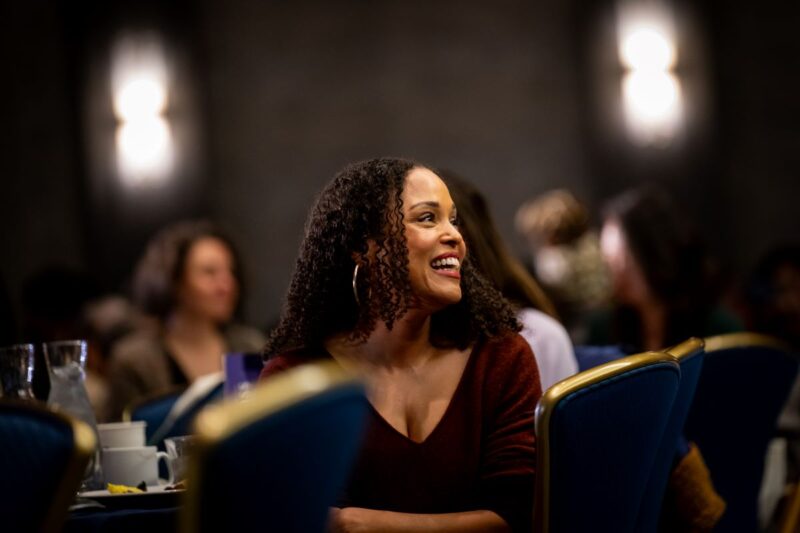Waverly Book Festival’s opening night event, the eponymous writers salon featuring intermedia artist and writer Rahne Alexander, gave me distinct Baltimore house show vibes. It was set in an unfinished room inside Peabody Heights, a working brewery, taproom, and occasional performance venue housed in a former industrial space.
A few simple details helped create the warm atmosphere: the soft glow of Edison bulbs in the chandelier, a colorful rug spread out on the concrete floor, a single but sizeable Ficus gracing the random corner, and a slim gray cat with a white-tipped tail that zoomed in and out between the chairs a couple of times that night. Familiar sounds of the city buzzing with its usual Friday night energy drifted in through the open beer garden doors, providing a backdrop for the Baltimore-centric evening.
The audience settled under the collection of historic Baltimore baseball teams’ pennants arranged on the walls (the brewery was the site of Terrapin Park in the first half of the 20th century), sipping beer out of clear plastic cups, and chatting with each other while they waited for the salon to begin. At one point, Odyssey’s “Our Lives Are Shaped by What We Love” came on the speakers.
Although I attended the event alone, I felt at home in more ways than I could count: a writer at a lit reading, a reader at a book festival, and a Baltimore transplant in the city I have called home longer than any other place on earth.
